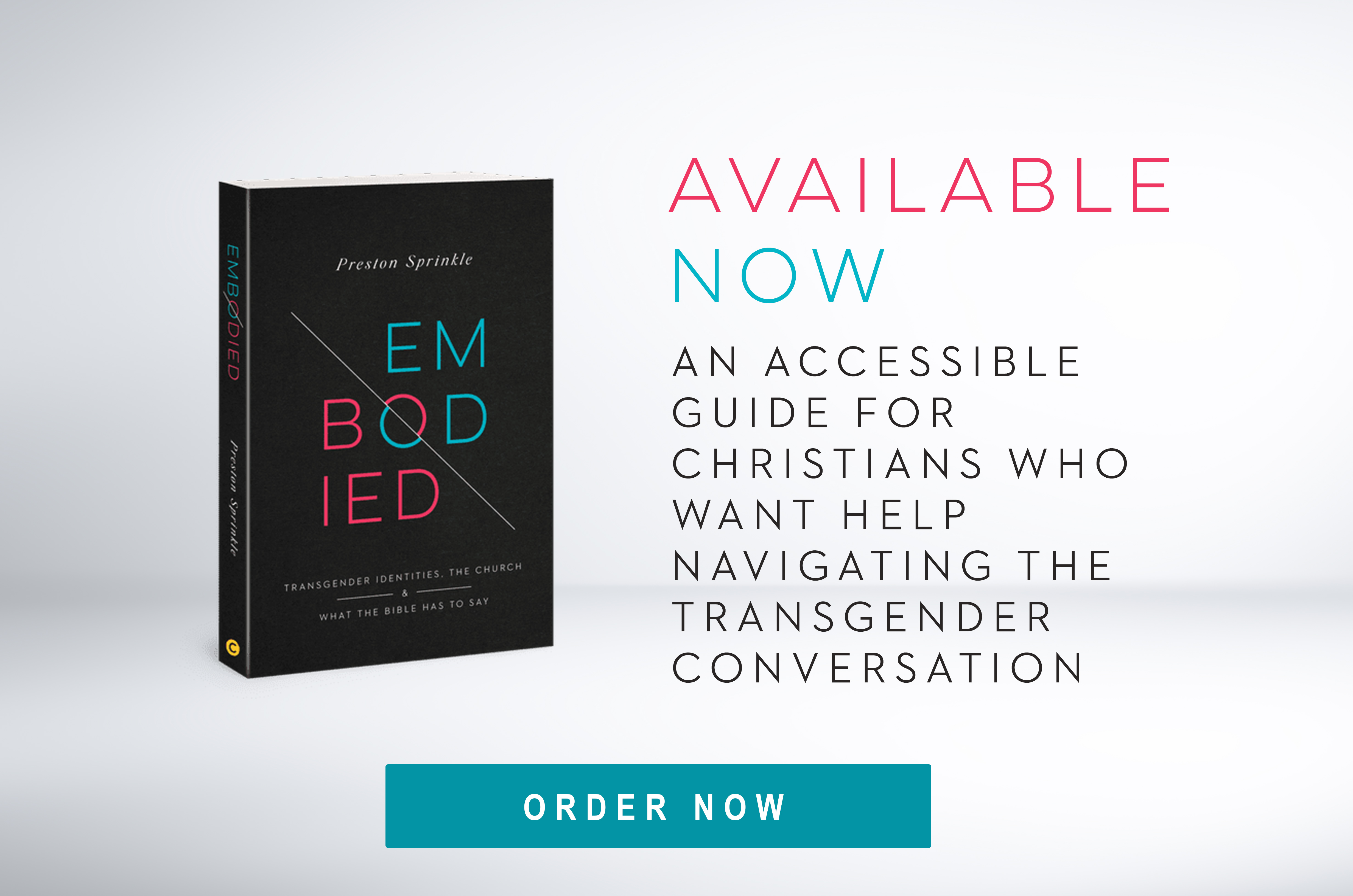
By Gregory Coles. Greg is a Senior Research Fellow at The Center and is the author of Single, Gay, Christian and No Longer Strangers.
Back in my teenage, evangelical-youth-group-attending days, part of me wished I had been a drug addict.
I’m not saying I wanted to be a drug addict. Heavens no. But I wanted to be one of those guys who used to be a drug addict. I wanted a Christian testimony with a colorful backstory. I wanted to talk about Jesus the way gym rats talk about fitness, with obvious before-and-after photos proving the magnitude of my transformation.
The irony, of course, was that even though youth group attendance made me want this kind of testimony, youth group was also working hard to make sure I never had this kind of testimony. I wasn’t supposed to grow up into a guy who nearly died of an overdose and then met Jesus. I was supposed to grow up into a guy whose only “acid trip” was the time I slipped in a puddle of lemonade. I was supposed to have a really boring testimony.
Behold: a paradox of the evangelical upbringing. I wanted to become like the people whose testimonies I admired. But I also knew that the only way to become like them would be to first live in ways that both they and I believed to be wrong.
Buy Now!
Embodied: The Latest from Preston Sprinkle
When I started dealing with my sexuality, I faced a similar problem. The first book I read on the topic of same-sex sexuality was about a man who met Jesus after years of atheism and sexual promiscuity. When this man became a Christian, his sexual behaviors and the whole shape of his life radically shifted. The question of whether he was still attracted to men didn’t feel particularly important in the context of a story like that. His before-and-after photographs were plenty grandiose without calling that detail into clear relief.
But what about me? I’d made the mistake of meeting Jesus too early, it seemed. My whole experience of same-sex sexuality had occurred after I was already a Christian. The only clear before-and-after photos I could imagine were photos declaring my progression from gay to straight. And alas, despite my best efforts to pray myself straight, I remained exactly as gay at age 26 as I had been at age 12. (A solid six on the Kinsey scale, for those of you keeping score.)
I felt like the guy who joins a gym and still looks mostly the same after fourteen years of working out. No epic weight loss journey. No spectacular modeling contract. Just the same old scrawny frame and stubborn love handles, waxing and waning with the seasons.
Nobody gets inspired looking at those before-and-after photos.
Twenty-six was the year I came out to the world. I called myself “gay,” not “same-sex attracted,” and that linguistic choice disturbed some people. But I sometimes wondered if the thing that disturbed them more was the boringness of my testimony. I was gay at the beginning of the story, and still gay at the end. If only I had come to Jesus after years of wanton promiscuity, my current celibacy could be framed as an escape out of “the homosexual life.” My testimony could be properly colorful, my before-and-after photos an obvious artifact to the boldly transforming work of Jesus.
But alas, having been too well raised among the evangelicals, I scandalized them with a testimony that was boring and inconvenient and shockingly unsexy. Jesus was transforming me. He had been transforming me from the very beginning. (As he will, I trust, continue transforming me until the very end.)
And yet none of that transformation made me no-longer-gay.
I’ve been reflecting recently on why the stories of same-sex-oriented people who “used to be active in the homosexual lifestyle” seem to garner more attention (on average) from straight Christians than the stories of lifelong celibates. And I think there are a number of factors at play, at least two of which are beautiful and admirable.
For one thing, there’s the Luke 7:47 principle that our awareness of how much we’ve been forgiven becomes an engine for the magnitude of our love for Jesus. While I would hasten to say that even boring-testimonied folks like myself have still been forgiven from scads of things—lust and pornography, as well as pride and envy and greed and gluttony and idolatry (and the list goes on)—I also recognize that my siblings in Christ who have spent long years without Jesus can speak about their rescue in a way that I cannot (and need not) speak.
Second of all, there’s the simple matter of good storytelling. Everybody loves a narrative arc that takes some sharp turns along the way. Even though I no longer wish that I used to be a drug addict, I still willingly admit that my memoirs would be much more exciting memoirs if I had met Jesus after nearly dying of an overdose. We call boring testimonies “boring” for a reason.
But paired with these two beautiful and admirable factors, I wonder if there’s sometimes a third factor at play, a slightly more insidious one:
What if many straight Christians prefer the trajectory of a testimony that they can interpret as moving away from “the homosexual life”? What if they don’t want to be faced with the reality of ongoing same-sex orientation and all the challenges that reality could pose for their own lives and theologies? What if they don’t want to grapple with the fallenness of their own heterosexual orientations, or consider the idolatrous role that marriage has come to play in their conception of the world?
Most of all, what if they don’t want to hear a testimony in which struggle and sorrow and challenge persist at every point along the way, even in the midst of beauty and hope? What if they’d prefer the clouds to roll back, the temptations to disappear, and the happily-ever-after credits to roll? What if they want Jesus to tidy everything up in my life, and to prove that tidiness by making me look more like them at the end of the story than I did at the beginning? (Married, ideally. At the very least, much less gay.)
If this concern of mine doesn’t apply to you, no worries. (#NotAllStraightChristians) And certainly, don’t hear me saying that I have anything against the beautiful testimonies of folks who met Jesus after a season of sexual promiscuity. I celebrate that these siblings have joined the Kingdom, however and whenever they arrive!
My concern is simply this: I long for us to stop perpetuating a world in which a gay teenager might ever say, as I recall once having said to myself, “If only I’d gone out and had a ton of sex before I met Jesus, so that I could have a testimony worth telling.”

